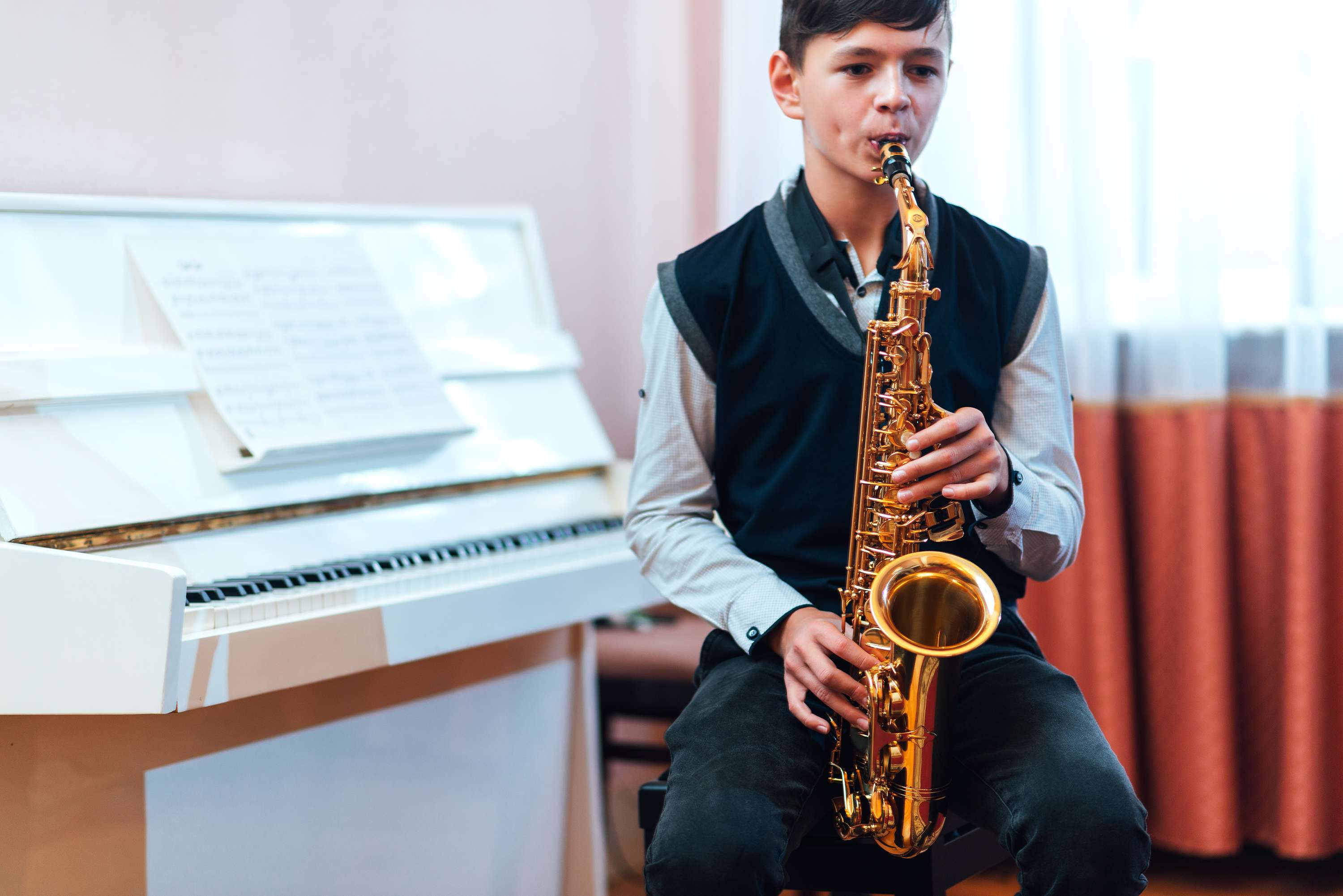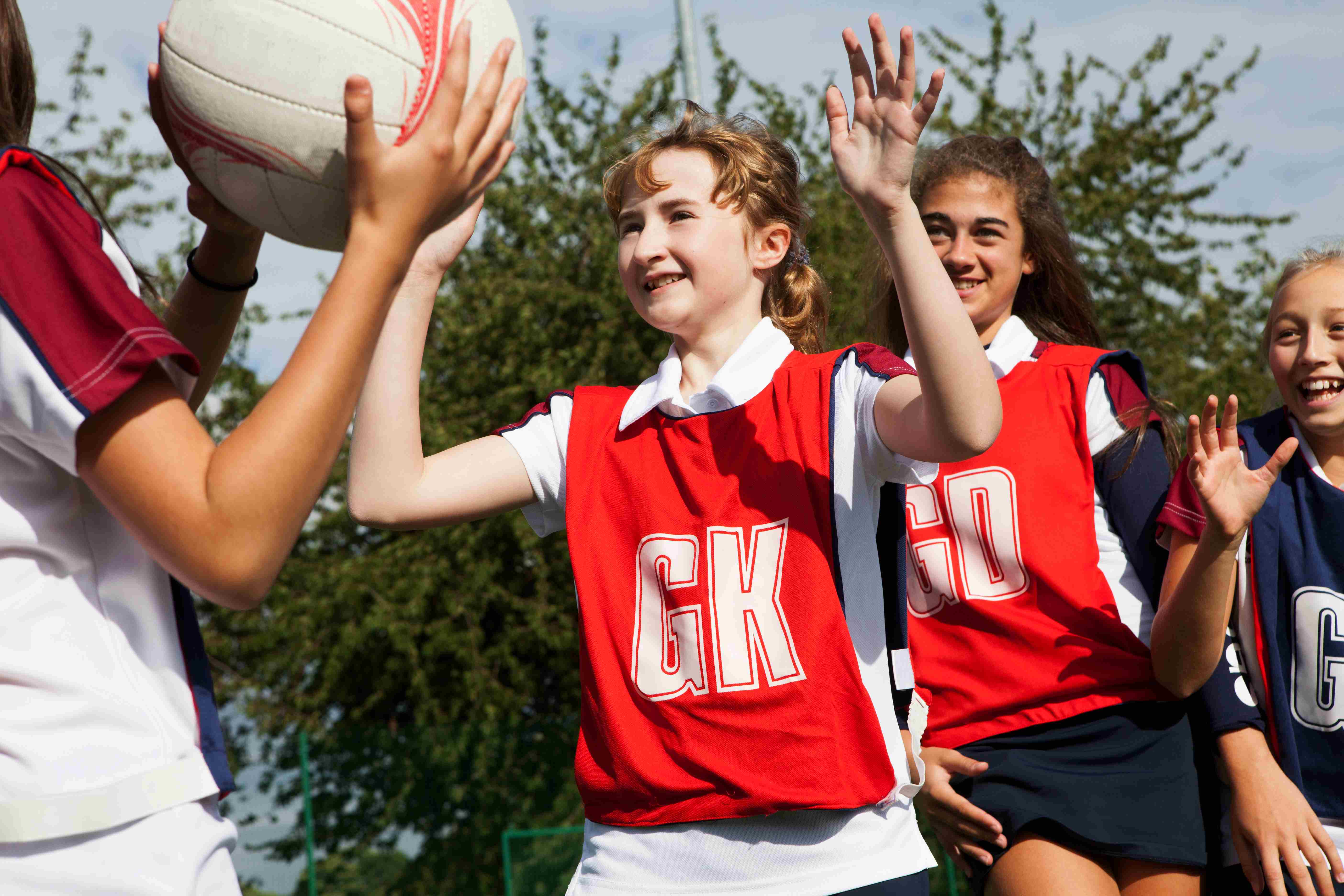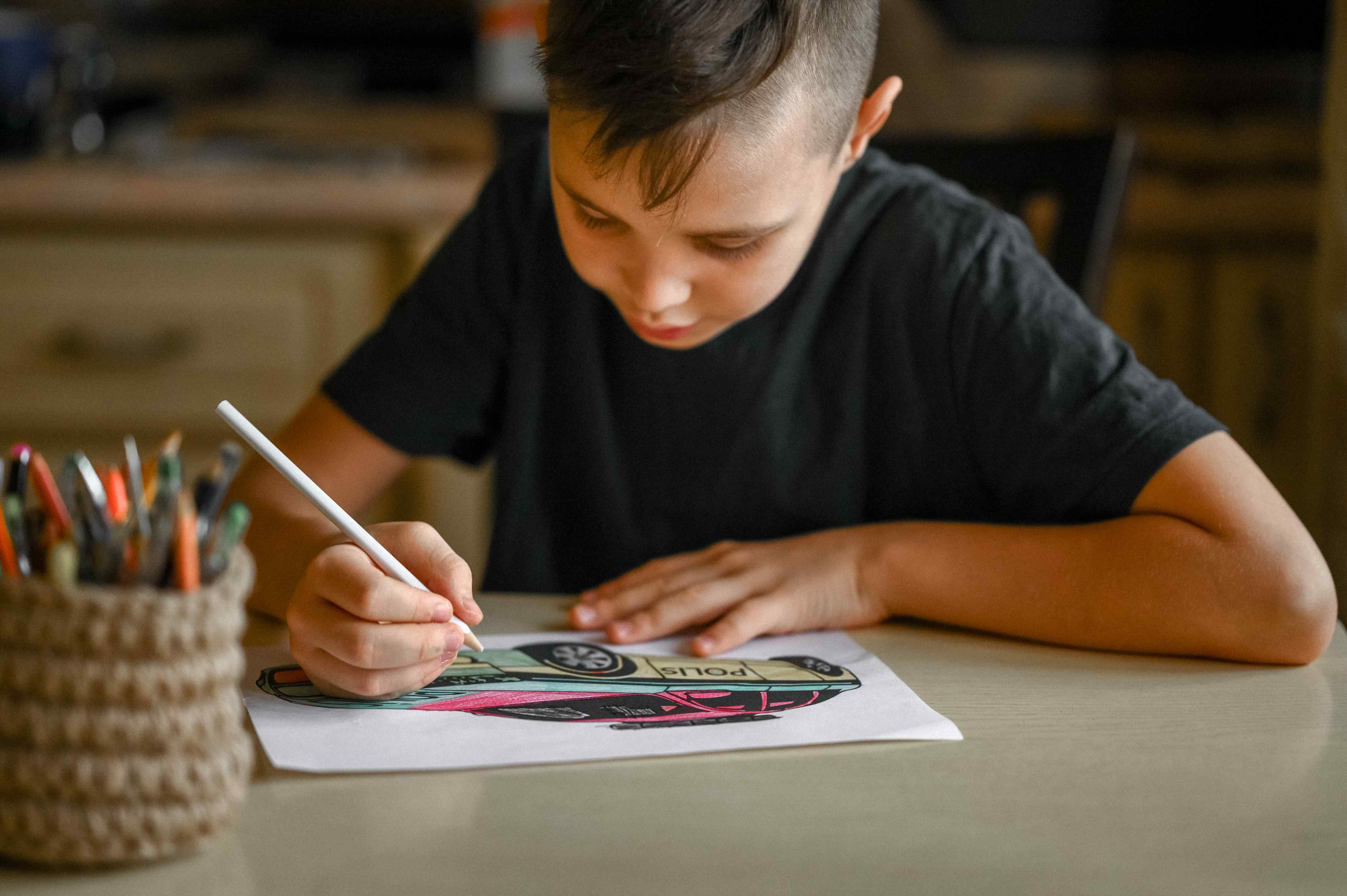Your guide to independent school scholarships

their child’s education. Scholarships recognise talent and achievement and can come with financial benefits, such as reduced school fees or monetary awards.
In this comprehensive guide, we’ll cover:
- What scholarships include and the different types of scholarships available
- How to apply for a scholarship
- What you can do to increase your child’s chances of being rewarded with a scholarship
What are scholarships?
A scholarship is an award given to students who demonstrate exceptional talent or potential in a particular area. Independent schools use scholarships to attract bright and talented pupils who can contribute positively to school life.
Scholarships differ from bursaries, which are means-tested and based on financial need. Scholarships are awarded on merit, so any child with the relevant skills or achievements can apply.
What scholarships are available at independent schools?
Independent schools offer a wide range of scholarships to cater to different talents. Here are some of the most common scholarships available at independent schools:
- Academic scholarships: awarded to students who excel academically. This often requires high performance in entrance exams or specific tests.
- Art scholarships: for creative students with talent in drawing, painting, photography or design.
- Drama scholarships: ideal for children with a passion for acting, theatre or performance.
- Music scholarships: recognises musical talent, such as singing or playing instruments.
- Sport scholarships: for children who have shown exceptional skill and dedication in one or more sports.
Some schools may also offer more niche scholarships, such as:
- Chess scholarships: For skilled players with a track record in competitive chess.
- Design & engineering scholarships: Focused on problem-solving, creativity, and innovation in STEM (Science, Technology, Engineering and Mathematics) fields.
- Choral scholarships: For talented singers who contribute to school choirs or musical productions.

How to apply for scholarships
Although the scholarship application process varies by school, most follow these general steps:
1. Complete a scholarship application form
Look at the websites of your target schools to see which scholarships are available. Many schools include detailed information about the skills successful scholars will need and how to apply.
If you believe your child is a good candidate for a particular scholarship, you will need to complete an application form. Be prepared to submit evidence of your child’s achievements, such as certificates, a portfolio, or videos of performances. You may also need to provide supporting references from professionals who know your child – such as a music teacher or a sports coach.
Note that many independent schools do not have an application process for academic scholarships. In most cases, all children who take a school entrance exam are automatically considered for an academic scholarship.
2. Prepare for the assessment
Children who are shortlisted from the application stage are invited to a scholarship assessment. This is tailored to the scholarship type. For example, drama applicants might need to audition, sports applicants might undergo fitness tests, and art applicants might participate in a practical workshop.
Your target school will inform you when your child’s scholarship assessment will take place. They will also let you know if there is anything specific your child needs to prepare in advance or bring with them to the assessment.
3. Pass the entrance exams
If your child’s target school is academically-selective, they will need to pass the entrance exam in addition to scholarship assessments. Only children who would otherwise be offered a place at the school are eligible for scholarships.
Not sure what your child’s entrance exam involves? Our admissions experts are happy to help. Click on the live chat icon at the bottom of your screen to chat or our team, or send us an email at [email protected].
4. Maintain performance standards
Children who are awarded a scholarship are normally expected to maintain their achievement levels throughout their time at school. They will also need to show dedication to the subject area by getting involved in extra-curricular activities.
For example, a music scholar might be expected to join school orchestras and perform at school events. Meanwhile, a sports scholar may join A or B teams in a particular sport and represent the school at inter-school competitions.

How to increase your child’s chances of success
Scholarships can be competitive. Admissions teams and heads of departments normally make decisions about scholarships based on:
- The child’s attainment in the subject (e.g. evidence of a required Grade for musical instruments)
- How dedicated the child is (e.g. do they attend a local sports club on a weekly basis, or have they had leading roles in school performances?)
- Recommendation from a professional (e.g. do they have a good reference from their sports coach or a drama teacher?)
- Their performance at assessment (e.g. what is the quality of the work they produced during their art workshop? Did they perform a musical piece with little noticeable errors?)
Preparation for scholarships is key. Here are some actionable tips to give your child the best chance!
1. Start early
Encourage your child to explore their talents and interests from an early age. This could mean enrolling in music lessons, joining sports clubs, or participating in art classes.
Regular practice and gradual improvement will showcase their dedication and passion, which schools value highly. Starting early also allows your child to build a record of achievements over time, such as certificates, competition wins, or event participation.
2. Research schools thoroughly
Each school has its own scholarship programme with unique criteria and deadlines.
Put aside some time researching the schools you’re interested in. This can include reviewing their websites, downloading prospectus materials, attending school open days, or speaking to their admissions teams.
Find out what they prioritise in scholarship candidates and whether they have specific assessment formats, like practical tests or interviews.
3. Build a strong portfolio
A well-rounded portfolio is essential for demonstrating your child’s abilities. Include high-quality evidence such as certificates, awards, videos of performances, photos of artwork, or sports achievements.
Be selective about what you include – quality over quantity matters! Organise the portfolio in a clear and professional manner so that it’s easy for schools to review.
4. Practice for assessments
Help your child feel confident about the scholarship assessment process by practising in advance.
If the assessment involves an audition, rehearse in a similar setting. If there’s a written test, use practice papers to familiarise them with the format. For sports scholarships, make sure they’re participating regularly in their chosen activity to stay prepared. Practice not only improves performance but also reduces nerves on the day!
5. Foster a growth mindset
Schools look for students who demonstrate resilience and a willingness to improve. Teach your child to view challenges as opportunities to grow and learn, rather than obstacles.
Praise their efforts and progress, not just their results. This mindset will help them approach assessments with confidence and a positive attitude, which can leave a strong impression on scholarship examiners.
6. Prioritise wellbeing
The scholarship application process can be demanding. It’s important to support your child’s mental and emotional health to avoid burnout.
Encourage breaks from studying or practising, and make time for other fun and relaxing activities. Overdoing practice and preparation can run the risk of your child losing engagement and interest in something they used to enjoy!
Regular conversations about their feelings can help them stay calm and focused. Reassure them that their worth isn’t defined by the outcome — what matters is that they’re giving their best effort.

Take control of your child’s independent school prep.

Worried about keeping pace with the competition? Independent school exams can feel unpredictable, but your child’s preparation doesn’t have to be. Atom shows you exactly what to practise and how they’re performing, so you can stay ahead throughout the admissions process.
- Follow personalised weekly exam plans that show them what to learn next.
- Practise with mock tests that replicate their exam and generate new questions every time, so they build real exam skills.
- Track progress and see how they compare to others preparing for the same schools.
Start your free trial and help your child get ready for senior school entry.

Scholarship FAQs
How much financial help do scholarships provide?
The financial value of scholarships varies by school. Some provide a small percentage discount on fees (such as 5% or 10%) while others may cover a larger portion (e.g. 15% or 20%). It’s always best to check with the school for specific details.
Can my child apply for more than one scholarship?
In many cases, yes. Some schools allow students to apply for multiple scholarships if they excel in more than one area. However, this depends on the school’s policies.
Are scholarships only for older children?
No. Some schools offer scholarships to younger children (such as at 11+ entry), while others focus on older year groups (such as 13+ entry or sixth form). Check with individual schools to find out what they offer.
What is the timeline for scholarship applications?
The scholarship application process usually runs at the same time as the standard entrance process. Exact dates vary between schools, but it might look something like this:
- November in Year 6: deadline for main 11+ applications and 11+ scholarships
- December in Year 6: 11+ entrance exam takes place and scholarship assessment invitations are sent
- January in Year 6: interviews and scholarship assessments
- February in Year 6: offers of places and scholarship offers
What is the difference between a scholarship and a bursary?
A scholarship is awarded based on a student's exceptional talent or potential in a specific area, such as academics, sports, or the arts. It sometimes comes with financial benefits, such as a discount on school fees.
A bursary is means-tested financial assistance provided to families who cannot afford the full school fees. Bursary recipients don’t usually need to show talent or potential in an extra-curricular subject.
How competitive are scholarships at independent schools?
Scholarships can be highly competitive. Independent schools are often looking to attract the most talented students. The level of competition can vary depending on the school’s prestige (e.g. ranking in league tables), the type of scholarship, and the number of children applying.
Do all independent schools offer scholarships?
While many independent schools offer scholarships to attract talented students, not all do. A growing trend is seeing lots of independent schools reduce their scholarship provision to increase the funds available for bursary applicants.
If you would specifically like your child to apply for a scholarship, make sure to check with your target school first to see if they offer scholarships.
Can scholarships be combined with bursaries?
Some schools do allow students to receive both a scholarship and a bursary. A scholarship recognises talent and might include a fee reduction, while a bursary can provide financial assistance based on need. Combining both can make the cost of independent education more affordable.
Are there scholarships available for children with extra-curricular talents?
Yes. Many independent schools offer scholarships for talents in non-tested subjects, such as music, sports, art, drama, chess, design and engineering, and more. These scholarships help nurture and develop specific skills and interests, and celebrate students’ contributions to the school community.
What obligations do scholars have?
Scholarship recipients need to maintain high standards in their area of talent. This includes getting involved in related school activities (such as choirs, orchestras, sports teams or school performances), maintaining an exemplary academic record, and upholding the school’s values and expectations. Children who do not meet these standards might have their scholarships revoked. For more details, take a look at your target school’s scholarship policy.
How early should we start preparing for scholarship assessments?
We recommend starting scholarship preparation well in advance. This is often a year or more before the application deadline.
Early preparation gives your child plenty of time to develop the necessary skills, build a strong portfolio, and get familiar with the assessment process.
Bear in mind that children applying for music scholarships may be expected to achieve a certain level (such as a particular ABRSM Performance Grade). High musical grades can take years of practice to achieve.
Scholarships provide an incredible opportunity for your child to showcase their talents. They can also be a solution for easing the financial burden of independent school fees.
Although the process can feel challenging, careful preparation and a positive mindset can make all the difference.
At Atom Learning, we’re here to support you and your child every step of the way.

